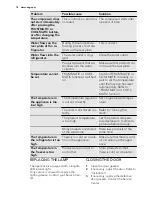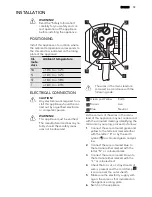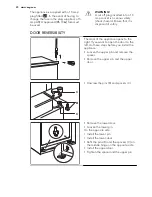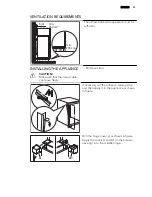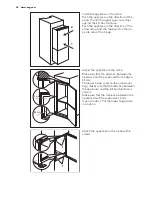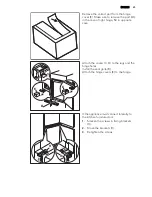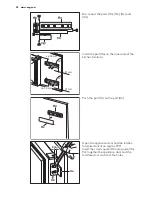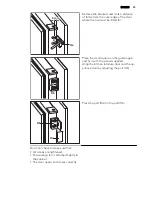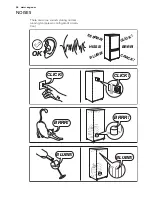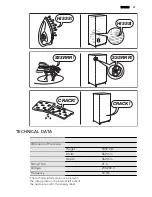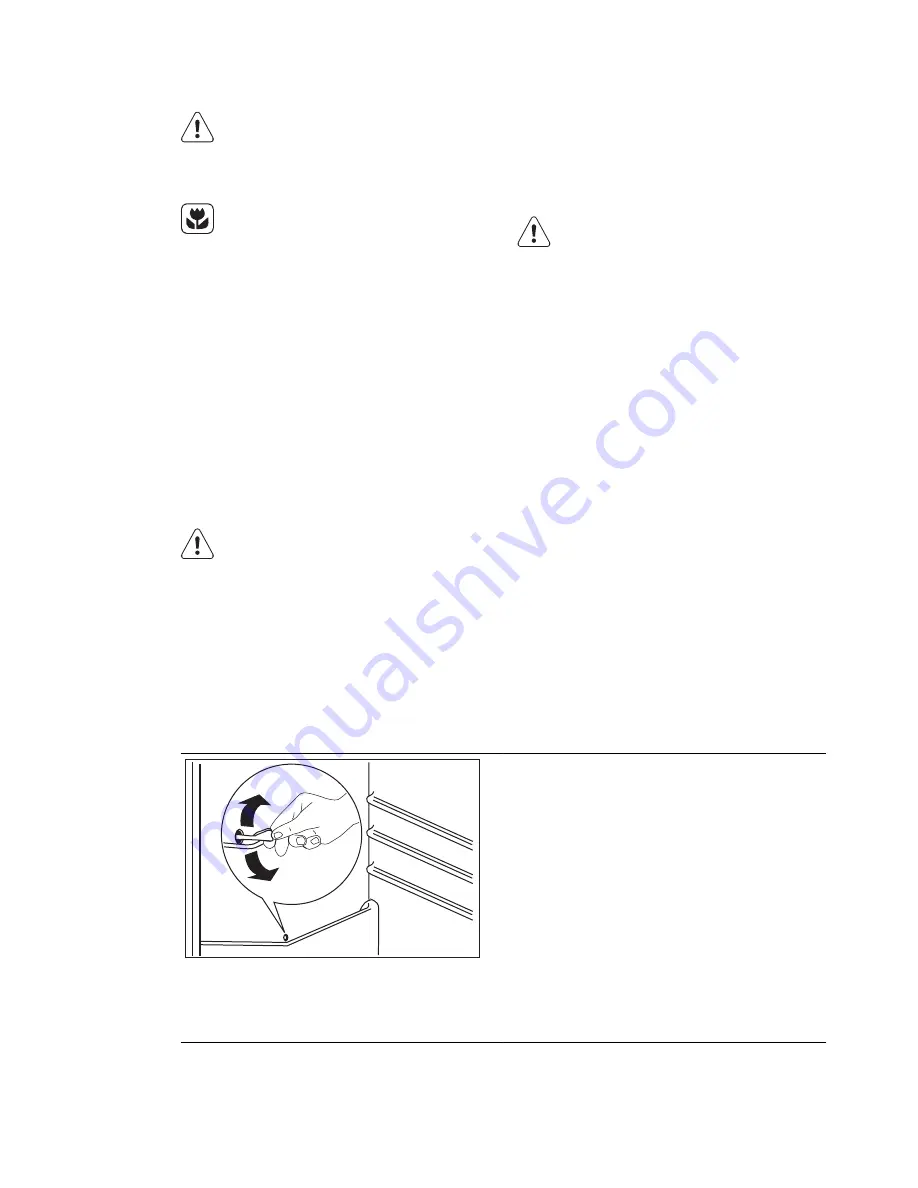
CARE AND CLEANING
CAUTION!
Unplug the appliance before car-
rying out any maintenance opera-
tion.
This appliance contains hydrocar-
bons in its cooling unit; mainte-
nance and recharging must there-
fore only be carried out by author-
ized technicians.
PERIODIC CLEANING
The equipment has to be cleaned regular-
ly:
• clean the inside and accessories with
lukewarm water and some neutral soap.
• regularly check the door seals and wipe
clean to ensure they are clean and free
from debris.
• rinse and dry thoroughly.
Do not pull, move or damage any
pipes and/or cables inside the
cabinet.
Never use detergents, abrasive
powders, highly perfumed clean-
ing products or wax polishes to
clean the interior as this will dam-
age the surface and leave a strong
odour.
Clean the condenser (black grill) and the
compressor at the back of the appliance
with a brush. This operation will improve
the performance of the appliance and
save electricity consumption.
Take care of not to damage the
cooling system.
Many proprietary kitchen surface cleaners
contain chemicals that can attack/damage
the plastics used in this appliance. For this
reason it is recommended that the outer
casing of this appliance is only cleaned
with warm water with a little washing-up
liquid added.
After cleaning, reconnect the equipment
to the mains supply.
DEFROSTING OF THE REFRIGERATOR
Frost is automatically eliminated from the
evaporator of the refrigerator compart-
ment every time the motor compressor
stops, during normal use. The defrost wa-
ter drains out through a trough into a spe-
cial container at the back of the appli-
ance, over the motor compressor, where
it evaporates.
It is important to periodically clean the
defrost water drain hole in the middle of
the refrigerator compartment channel to
prevent the water overflowing and drip-
ping onto the food inside. Use the special
cleaner provided, which you will find al-
ready inserted into the drain hole.
DEFROSTING OF THE
FREEZER
The freezer compartment of this model,
on the other hand, is a "no frost" type.
This means that there is no buildup of
frost when it is in operation, neither on
the internal walls nor on the foods.
The absence of frost is due to the contin-
uous circulation of cold air inside the
ENGLISH
15


















